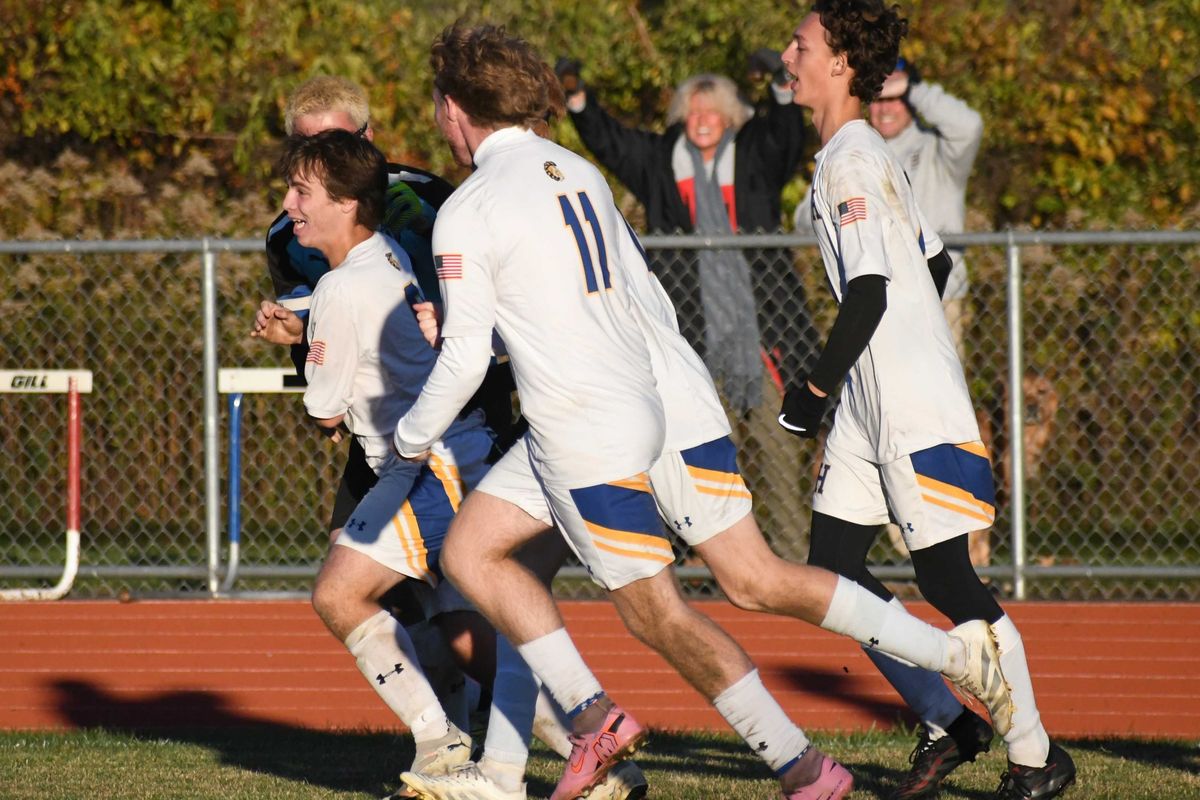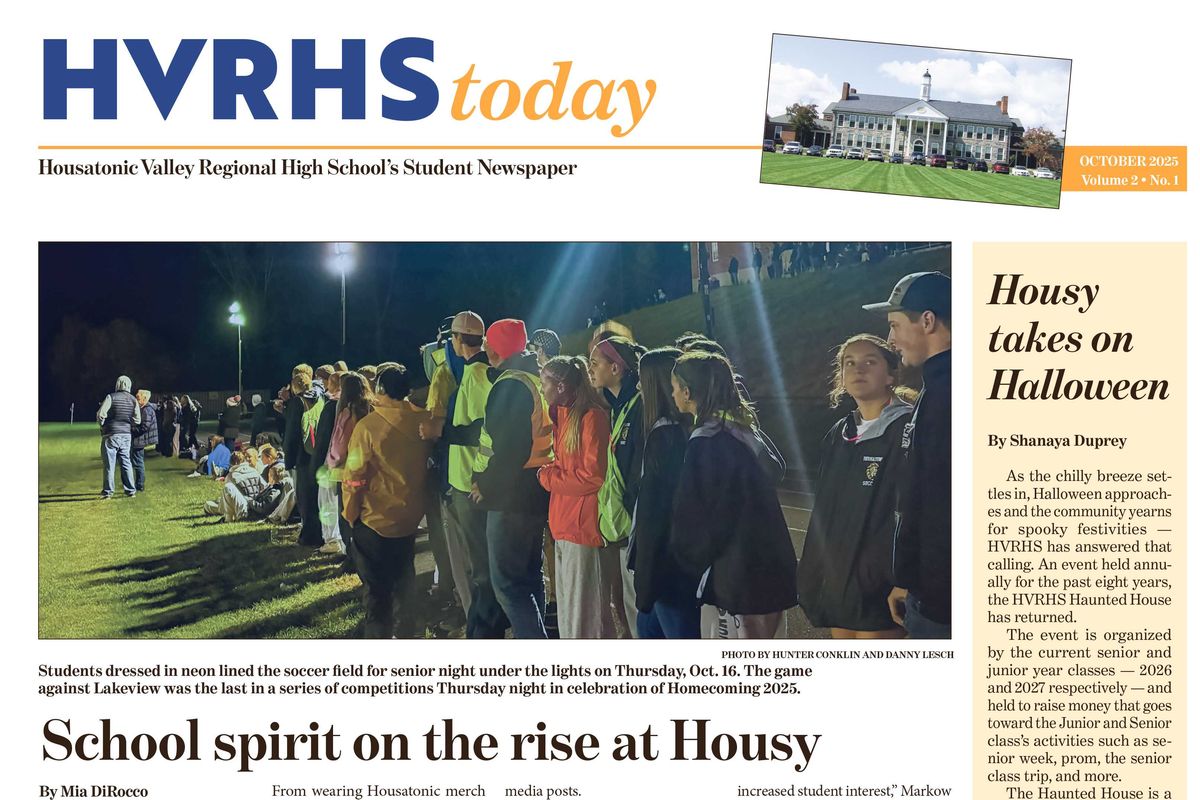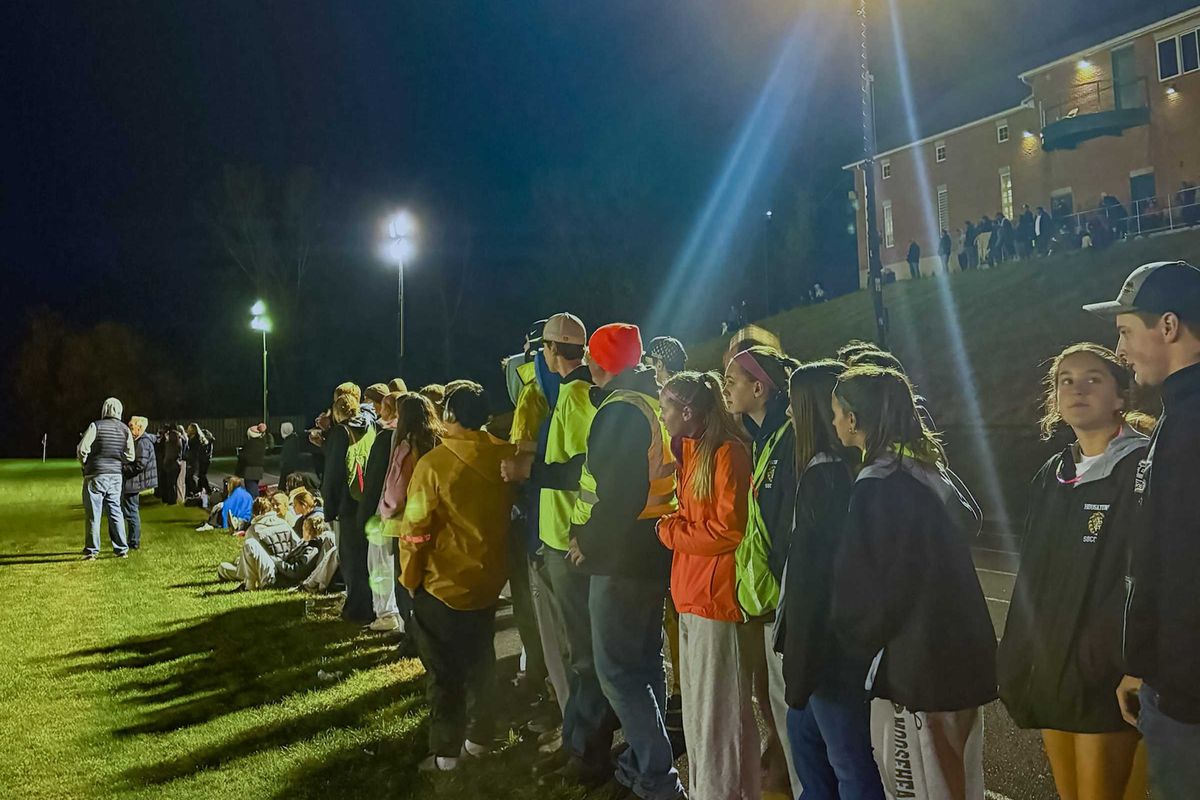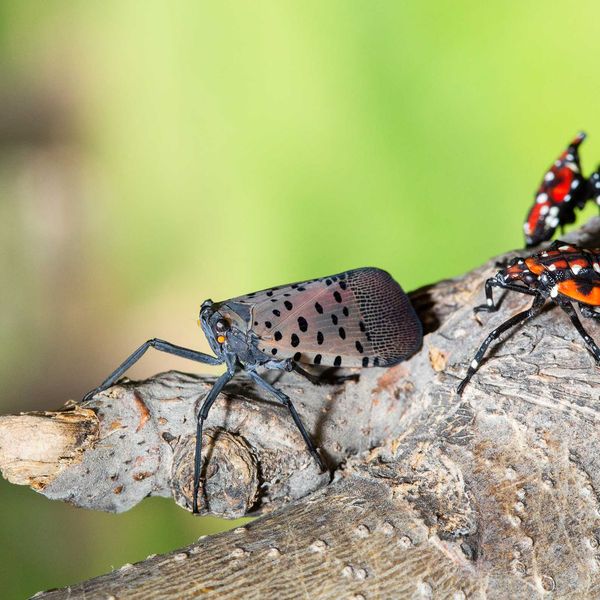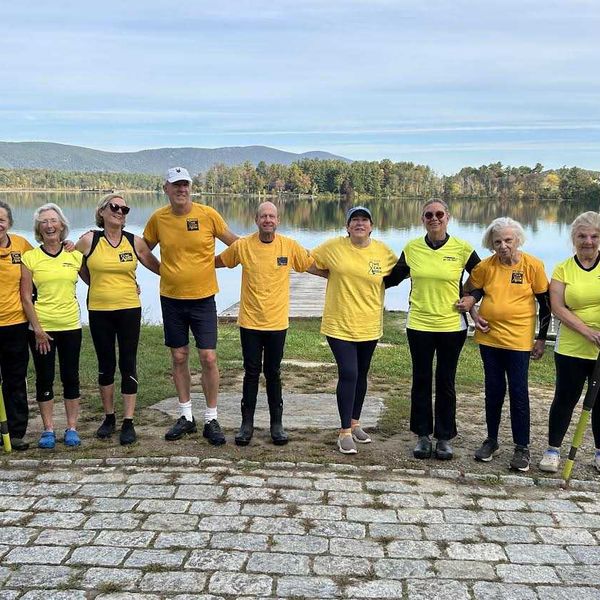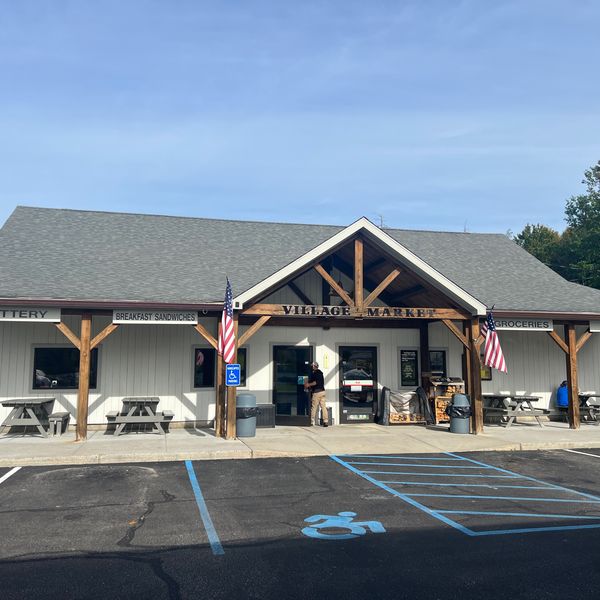Latest News
The HVRHS boys rejoice around Jackson McAvoy after he scored the game-winning goal against Shepaug with just two minutes left to play.
Photo by Riley Klein
WASHINGTON — Housatonic Valley Regional High School’s boys varsity soccer team advanced to the Berkshire League tournament final after a 1-0 win over Shepaug Valley High School in the semifinal game on Friday, Oct. 24.
Jackson McAvoy scored the game-winning goal with just two minutes remaining.
The victory marked HVRHS boys soccer’s first victory over Shepaug since 2020.
“Finally,” said HVRHS Coach Adolfo Portillo after the game.
HVRHS will play top-ranked Nonnewaug High School in the BL final. Nonnewaug advanced to the title game by beating Northwestern Regional High School in penalty kicks (4-3) after a 2-2 draw in regulation time.
The championship game will be played at Nonnewaug beginning at 5 p.m. Tuesday, Oct. 28.
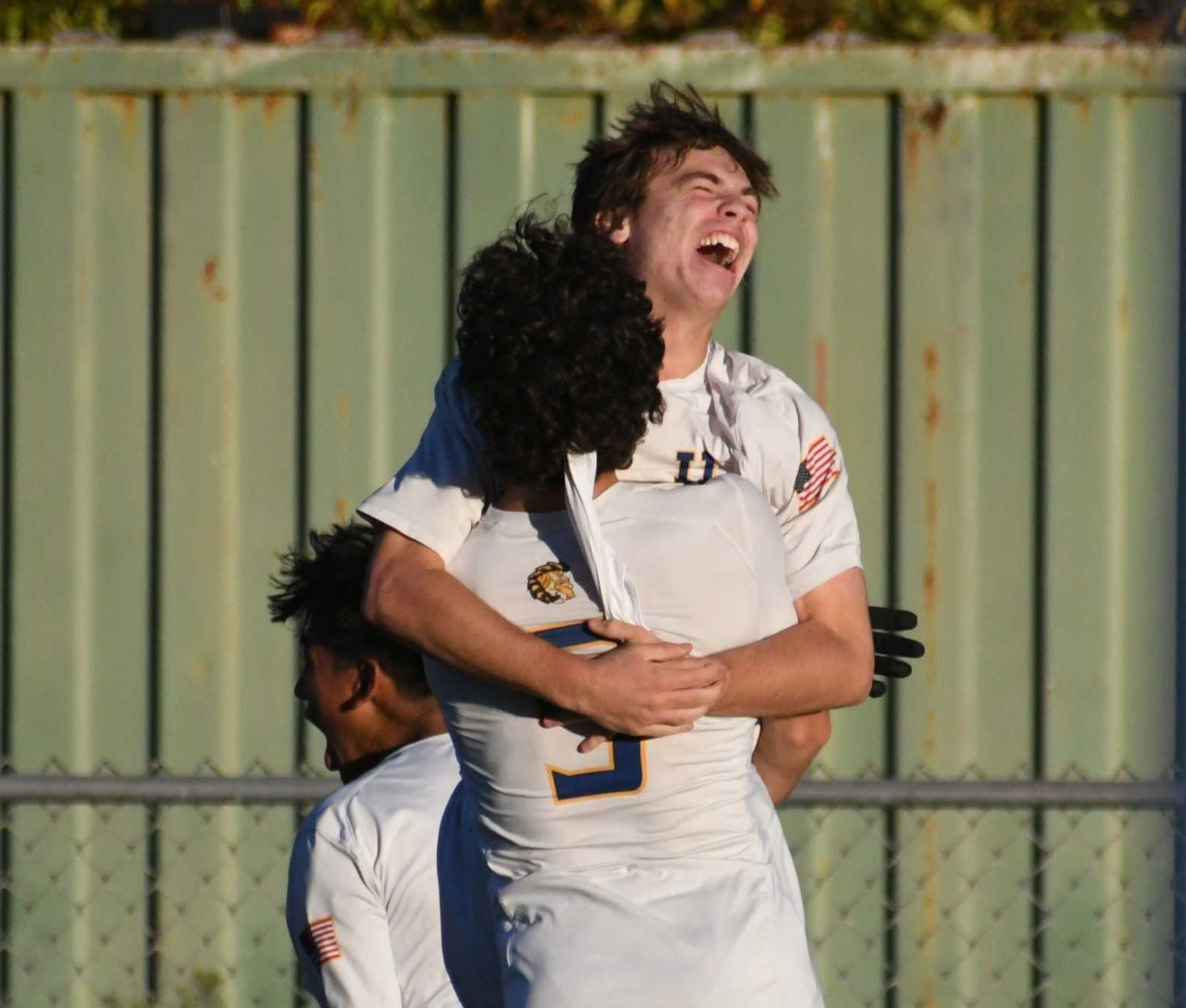
Keep ReadingShow less
Classifieds - October 23, 2025
Oct 22, 2025
Help Wanted
Weatogue Stables has an opening: for a full time team member. Experienced and reliable please! Must be available weekends. Housing a possibility for the right candidate. Contact Bobbi at 860-307-8531.
Services Offered
Hector Pacay Service: House Remodeling, Landscaping, Lawn mowing, Garden mulch, Painting, Gutters, Pruning, Stump Grinding, Chipping, Tree work, Brush removal, Fence, Patio, Carpenter/decks, Masonry. Spring and Fall Cleanup. Commercial & Residential. Fully insured. 845-636-3212.
SNOW PLOWING: Be Ready! Local. Sharon/Millerton/Lakeville area. Call 518-567-8277.
Real Estate
PUBLISHER’S NOTICE: Equal Housing Opportunity. All real estate advertised in this newspaper is subject to the Federal Fair Housing Act of 1966 revised March 12, 1989 which makes it illegal to advertise any preference, limitation, or discrimination based on race, color religion, sex, handicap or familial status or national origin or intention to make any such preference, limitation or discrimination. All residential property advertised in the State of Connecticut General Statutes 46a-64c which prohibit the making, printing or publishing or causing to be made, printed or published any notice, statement or advertisement with respect to the sale or rental of a dwelling that indicates any preference, limitation or discrimination based on race, creed, color, national origin, ancestry, sex, marital status, age, lawful source of income, familial status, physical or mental disability or an intention to make any such preference, limitation or discrimination.

Keep ReadingShow less
School spirit on the rise at Housy
Oct 22, 2025
Students dressed in neon lined the soccer field for senior night under the lights on Thursday, Oct. 16. The game against Lakeview was the last in a series of competitions Thursday night in celebration of Homecoming 2025.
Hunter Conklin and Danny Lesch
As homecoming week reaches its end and fall sports finish out the season, an air of school spirit and student participation seems to be on the rise across Housatonic Valley Regional High School.
But what can be attributed to this sudden peak of student interest? That’s largely due to SGA. Also known as the Student Government Association, SGA has dedicated itself to creating events to bring the entire student body together. This year, they decided to change some traditions.
Spirit week from Oct. 14-17 was unlike those of the previous years. From wearing Housatonic merch to Boomer vs Baby day, this year’s spirit week held a little friendly competition to see which grade could participate the most.
“I think that students are bored of the same old activities and events, so it’s good to switch things up even slightly to incentivize interest within students,” said SGA president and senior Mollie Ford. “Plus the point system is super beneficial because it gives students a reason to participate.”
The school spirit sentiment can be seen outside of just the school. Senior Simon Markow is known for his photography throughout the community, and has dedicated time to help Housy sports teams’ social media posts.
“Since I’ve started photography, I think school attendance [at sports games] has gone up,” Markow said. “I feel this year, students will be more aware of games and are more likely to be at the games.”
Whether it’s a pink-out volleyball game or an under the lights soccer match, it’s likely you’ll see some familiar faces.
Social media has played a large role in this over the years. Almost every student organization at Housatonic has an Instagram account, and it’s helped reach students more efficiently than a poster or email would.
“The increase of social media use, with the help from me but as well as the teams themselves has definitely increased student interest,” Markow said. “With Housy teams posting more about their upcoming games, and my help showing the cool goals, spikes, or touchdowns, it’s enlightened students to watch the games themselves.”
In a small school, promoting pride has proven to be a challenge. But this year’s senior class has made some adjustments in the hopes to change that.
“The SGA community has spent the last few years really focusing on student participation, because we think it’s the students who contribute to a better climate,” Ford said. While Housatonic’s student body may be small in size, it seems they certainly aren’t small in spirit.
Keep ReadingShow less
loading

